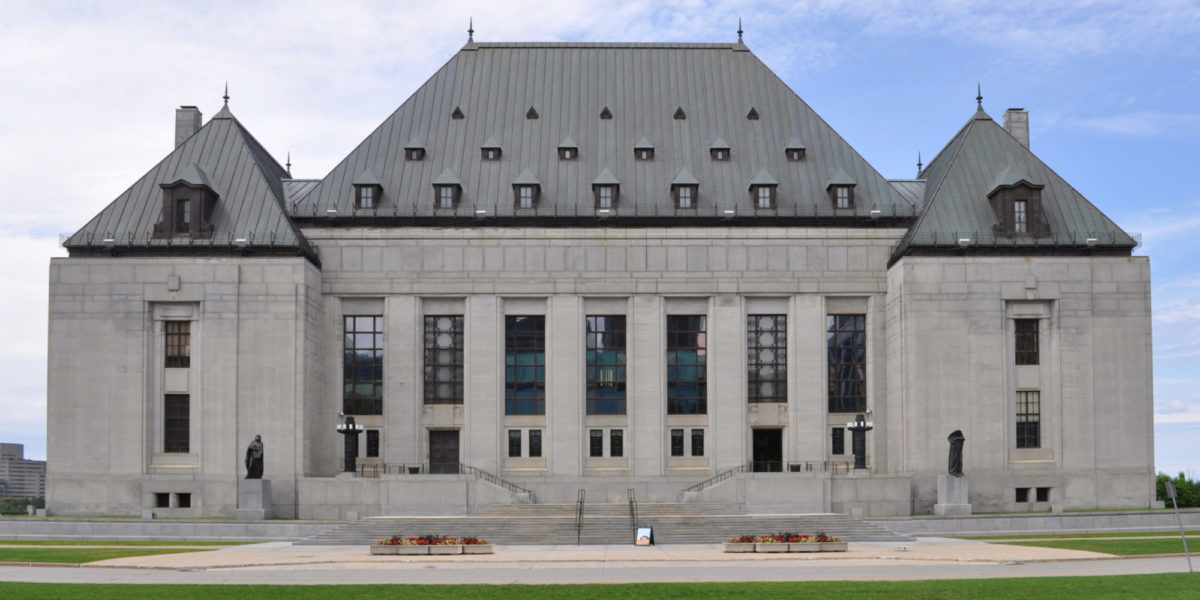Reproductive freedom and housing are both fundamental human rights recognized by the United Nations and the World Health Organization. But Canadians don’t necessarily have an enforceable right to either.
Abortion may be legal in Canada, but getting one isn’t always easy or straightforward. Barriers like a lack of trained providers and the costs of travelling long distances to receive care in urban centres, create inequitable access across the country.
There are parallels when it comes to housing. Although the Canadian government recognizes the right to housing in various forms of legislation, homelessness is on the rise, one-in-five households spend over 50 per cent of their income on rent, and in provinces like Ontario, investors now make up the largest segment of residential buyers.
In terms of case law, sections seven and 15 of the Canadian Charter of Rights and Freedoms are particularly relevant to housing and reproductive rights as they pertain to personal autonomy and equality. Section seven was used to strike down Canada’s previous abortion law on the grounds that it infringed upon the health and privacy of a pregnant person’s body, and advocates believe that further ground is to be won in recognizing reproductive choice as fundamental to the equal status of women and pregnant people as citizens.
Most recently, a 2015 Supreme Court case for the right to adequate housing used sections seven and 15 to argue that housing is essential to a person’s right to life, liberty and security, and that failure to ensure affordable housing perpetuates inequality and discrimination experienced by homeless and poor Canadians. But the challenge was ultimately unsuccessful because the court was unwilling to recognize positive rights.
Positive and negative rights is a concept that basically translates to action or inaction on behalf of the government. The government is obliged to help citizens realize a positive right, and conversely, cannot interfere with people’s negative rights. Aside from the government’s responsibility to guarantee French-language education under section 23, there are no positive Charter rights under section seven or 15… yet.
In a 2002 decision, Chief Justice Beverly McLachlin wrote that “one day [section seven] may be interpreted to include positive obligations.” Justice McLachlin cited an opinion from the renowned Person’s Case (which won the legal recognition of women as “persons” in 1929) that constitutional law must be “capable of growth and expansion” and that “it would be a mistake to regard s. 7 as frozen, or its content as having been exhaustively defined in previous cases.”
To date, the Supreme Court has considered positive rights as a matter of policy and has been reluctant to recognize them as they impose financial implications on the government. This is true, but either way, policy regarding housing and reproductive health — whether progressive or punitive — comes with a cost.
In Nordic nations, public, social, and cooperative housing is mainstream and composes a significant part of the housing stock. Provisions differ between regions but they all share a guiding principle: housing is prioritized for living rather than an asset for financial gain. Finland, in particular, is on course to eliminate homelessness by 2027. They have accomplished this through their “Housing First” principle, adopted in 2007, a seemingly simple ideology that housing is a basic human right and foundational in order to address other social and health factors that often accompany poverty.
According to the Y-Foundation, one of the national developers of the Housing First principle, “housing one long-term homeless person saves about 15,000 euros of society’s funds per year”. It’s estimated that homelessness costs the Canadian economy seven billion dollars annually through health care, justice and other taxpayer-funded costs.
Similarly, the argument for universal contraception — an essential component of “choice” — is one of tremendous cost savings. The termination of unplanned pregnancies costs the healthcare system $320 million annually, more than double the estimated $157 million annual cost for universal contraception.
Affordable housing, or a lack thereof, contributes to people’s decisions about when and if they are going to have children. When it comes to choice, Canadians need more options beyond private rental and ownership and a more holistic understanding of our reproductive rights. In order to achieve that, we need to expect our elected leaders to act, and if they refuse, we need our courts to advocate for positive political action. In the face of escalating housing costs, and the downward trend of birth rates to a 15-year low, the question is: what kind of society do Canadians want to call home?



